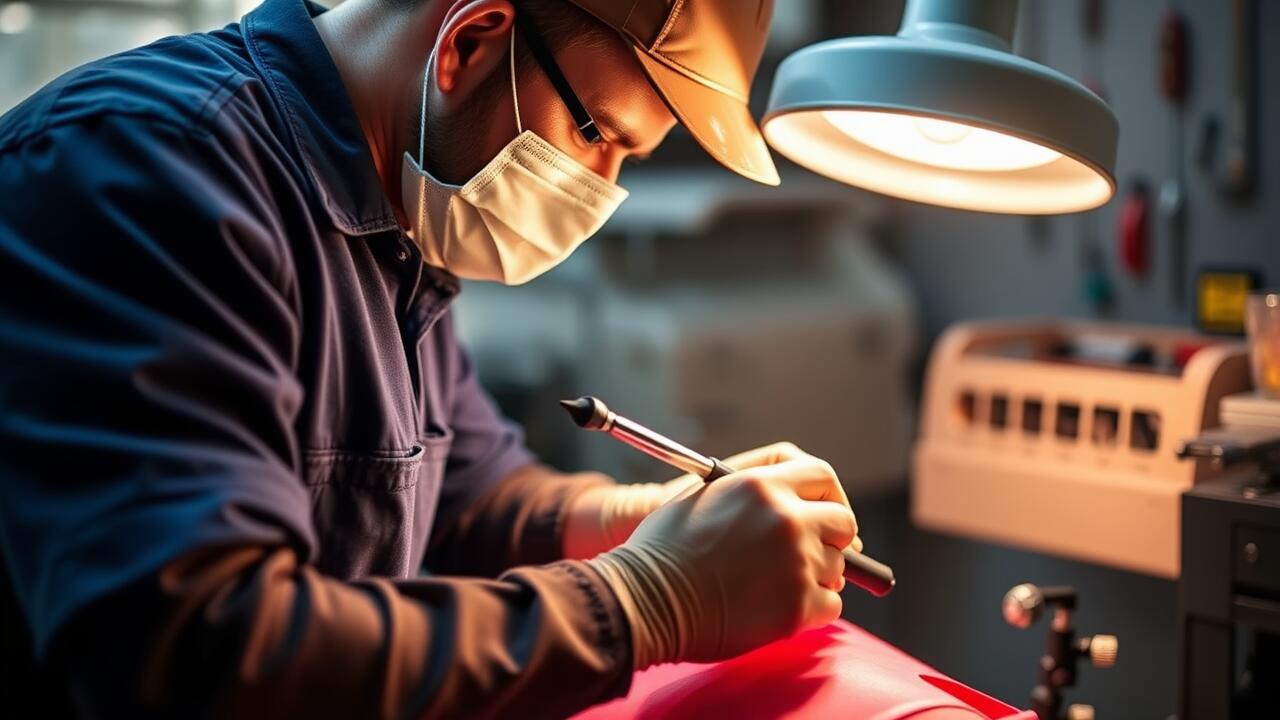
Care and Maintenance of Veneers
Caring for veneers involves maintaining good oral hygiene and regular dental check-ups. Brushing twice a day with a non-abrasive toothpaste will help keep your veneers clean and prevent plaque buildup. Flossing daily is also crucial, as it removes food particles and plaque from between the teeth and along the gum line. Avoiding hard foods and treating your teeth gently will contribute to the longevity of your veneers.
Professional cleaning by a dentist every six months is recommended to ensure that your veneers remain in optimal condition. While veneers are considered durable, it is important to be mindful of potential discolouration over time. Limiting the consumption of staining beverages such as coffee, tea, and red wine can help preserve their natural appearance. Regular maintenance and careful habits will ensure your veneers continue to look their best for years to come.
Find out further details by clicking here.
What Is the Best Way to Maintain Your Veneers?
Maintaining veneers requires a regular oral hygiene routine. Brushing at least twice a day with a non-abrasive toothpaste can help prevent plaque build-up on and around veneers. Flossing daily is also essential, as it removes food particles and plaque from between teeth. It is advisable to use a soft-bristled toothbrush to avoid damaging the surface of the veneers and to ensure their longevity.
In addition to daily care, regular dental check-ups are crucial for the maintenance of veneers. A professional cleaning can help keep them looking pristine while your dentist monitors their condition. Avoiding hard foods and using dental guards during activities like sports can further protect your veneers from chips or fractures. By taking these steps, you can ensure that your veneers remain in excellent shape for years to come.
Cost Considerations
Veneers can be a significant investment in your dental aesthetics, with costs that vary depending on several factors. The type of material chosen, such as porcelain or composite resin, plays a crucial role in determining the overall price. Additionally, the expertise of the dentist and the complexity of the case can influence the final cost. Researching different clinics in Bristol may help prospective patients find competitive pricing while ensuring they receive quality care.
It is important to consider that the cost of veneers is not necessarily a one-time expense. Regular dental visits may be required to maintain the integrity and appearance of the veneers over time. Patients should also account for any potential additional procedures that may be necessary for optimal results. Therefore, a comprehensive understanding of the financial implications is essential when contemplating veneers as a cosmetic dental option.
How Much Do Veneers Typically Cost in Bristol?
The cost of veneers in Bristol can vary significantly based on several factors, including the material used and the complexity of the individual case. Porcelain veneers tend to be more expensive than composite resin veneers due to their durability and aesthetic appeal. On average, patients can expect to pay anywhere between £400 and £1,000 per veneer. Additional costs may arise from consultations, pre-treatment procedures, or any required follow-up visits.
It is essential for individuals considering veneers to consult with their dentist for a detailed estimate tailored to their specific needs. Prices can also differ based on the clinic’s location and reputation. Some dental practices may offer financing options or payment plans to make the investment more manageable, so exploring various providers can help in finding the best value for the desired outcome.
Potential Risks and Side Effects
Veneers can enhance the appearance of teeth, but potential risks must be considered. Sensitivity is a common issue that many patients experience following the placement of veneers. The procedure often involves removing a thin layer of enamel, which may lead to increased sensitivity to hot and cold temperatures. In some cases, this sensitivity may persist for a certain period before subsiding.
Another risk associated with veneers is the possibility of misalignment or unevenness. If not applied correctly, veneers can lead to issues with bite and overall dental aesthetics. This misalignment might necessitate adjustments or even a complete replacement of the veneers. It is essential for individuals to consult with a qualified dental professional to mitigate these risks and ensure the best outcomes when considering veneers.
Are There Any Risks Associated with Getting Veneers?
Veneers are generally considered a safe cosmetic dental procedure, but some risks and side effects exist. Sensitivity to hot or cold temperatures may occur after application, as the procedure involves altering the tooth structure. Although rare, some individuals might experience a reaction to the materials used in veneers, leading to discomfort that may require further intervention.
Another potential risk involves the bonding process. If the veneers are not properly fitted or if the dental bonding does not adhere correctly, this can result in issues like dislodgment or breakage. Regular dental check-ups are essential for monitoring the condition of the veneers to ensure they remain secure and functional over time.
FAQS
What can I expect during the veneer application process?
During the veneer application process, your dentist will first evaluate your teeth and take impressions. They may then remove a small amount of enamel from your teeth to ensure a proper fit. After this, temporary veneers may be placed while your custom veneers are created, which typically takes a couple of weeks.
How long can I expect my veneers to last?
With proper care and maintenance, veneers can last between 10 to 15 years. Regular dental check-ups and good oral hygiene practices are essential to prolonging their lifespan.
Can I still get cavities with veneers?
Yes, while veneers are resistant to staining and decay, the natural teeth underneath can still develop cavities. It’s important to maintain good oral hygiene to protect your natural teeth.
Are there any alternatives to veneers?
Yes, alternatives to veneers include dental bonding, crowns, and teeth whitening treatments. The best option depends on your specific dental needs and aesthetic goals, so it’s wise to consult with your dentist.
Will getting veneers hurt?
The application of veneers typically involves minimal discomfort. Local anaesthetic may be used during the procedure to ensure you are comfortable. Some patients may experience sensitivity afterward, but this usually subsides quickly.

